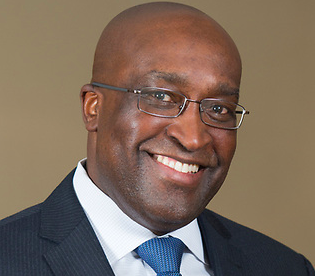A diplomat’s recipe on how to foster democracy in Niger
FOSTERING LASTING STABILITY AND DEMOCRATIC PROGRESS IN NIGER AND THE SAHEL: A COMPREHENSIVE APPROACH TO STRATEGIC ENGAGEMENT

BY AMBASSADOR OMAR AROUNA, MBA
Monday, according to a press release from the office of the U.S. State Department’s Spokesperson, Mathew Miller, Acting Deputy Secretary of State, Victoria Nuland, had traveled to Niger where she met separately with the leaders of the coup and members of the civil society “to express our grave concern regarding developments in Niger and our resolute commitment to supporting democracy and constitutional order. The United States continues to call for the immediate release of President Mohamed Bazoum, his family, and all those detained as part of the extra-constitutional attempt to seize power.”
In a news conference held afterwards in Niamey, Niger’s capital, the top U.S. diplomat stated:
“we wanted to speak frankly to the people responsible to this challenge to the democratic order to see if we could try to resolve these issues diplomatically, if we could get some negotiations going, and also to make absolutely clear what is at stake in our relationship and the economic and other kinds of support that we will legally have to cut off if democracy is not restored.”
I am happy the U.S. is engaging early and directly in Niger without the usual filters of its traditional allies. However, the situation in Niger presents a multifaceted challenge that demands a comprehensive analysis.
While many have been quick to advocate for the return of constitutional order and the reinstatement of President Bazoum, a deeper examination is crucial to understanding the root causes of the coup and the genuine support the Junta seems to have garnered among the Nigerien population.
Beyond the surface-level demand for democracy, it’s essential to inquire why the people of Niger are rejoicing and supporting the Junta. This suggests a level of discontentment with the previous administration, possibly rooted in socio-economic disparities, governance issues, or unmet public expectations. The quick attribution of external factors, such as Russia’s Wagner involvement, might overshadow the complex internal dynamics at play.
From a U.S perspective, engaging in a knee-jerk reaction of demanding a return to the status quo might overlook the opportunity to address the underlying grievances that fueled the coup. Instead of solely fixating on the immediate restoration of democratic norms, the United States could take a more nuanced approach. By delving into the societal pulse and uncovering the true aspirations and concerns of the Nigerien people, a more tailored and effective solution could emerge.
The United States should also recognize that the situation offers a chance to engage diplomatically, helping in fostering inclusive governance, socioeconomic development, and strengthening democratic institutions. By digging deeper and bypassing conventional narratives, the U.S. can play a more constructive role in supporting Niger’s path towards stability, inclusivity, and sustainable progress.
In essence, the Niger situation demands a shift from reactive responses to a proactive, strategic engagement. A deeper analysis that accounts for local realities and aspirations, while addressing root causes, holds the promise of not only resolving the immediate crisis but also of fostering a more stable and resilient Niger in the long term.
The situation in the region as a whole offers an intriguing parallel to the U.S. engagement with Eastern European countries following the fall of the Berlin Wall. Just as the United States adopted a strategic and comprehensive approach to support the transition to democracy and development in those nations, a similar model could be explored in Africa and the Sahel region.
By recognizing that the various coups in the region are not merely a singular event but symptoms of broader societal challenges, the U.S. can adopt a multifaceted strategy. This strategy could involve diplomatic efforts to engage with multiple stakeholders, including the Junta’s in Guinea, Mali, Burkina, Niger, and civil society groups, fostering dialogue and understanding.
Furthermore, drawing inspiration from the Eastern European example, the U.S. could offer assistance in building democratic institutions, promoting good governance, and providing technical expertise to address socioeconomic disparities through the Sahel region in an integrated manner. This approach goes beyond just advocating for a return to constitutional order. It requires delving into the complexities that underlie the situation.
The U.S. could also collaborate with international partners and organizations to coordinate efforts aimed at stabilizing the Sahel region as a whole. By focusing on regional stability, economic development, and security cooperation, the United States can contribute to addressing the root causes of instability and extremism in the region.
In conclusion: The U.S. has an opportunity to learn from its past successes in Eastern Europe and apply a similar approach to the challenges in Niger and the Sahel. By embracing a comprehensive and strategic engagement that takes into account local realities and aspirations, the United States can play a pivotal role in fostering lasting stability, development, and democratic progress in the region.
ABOUT THE AUTHOR

Ambassador Arouna is the former Ambassador of the Republic of Benin to the United States and Mexico, and the country’s former representative to the World Bank, the International Monetary Fund, and the Organization of American States. Ambassador Arouna is currently the Managing Partner of U.S.-Africa Cybersecurity Group, a cybersecurity management consultancy, and the CEO of Global Specialty LLC, a global business development consulting firm driven by providing advisory and operational services to organizations and their business communities seeking market entry and establishing business operations in Africa.
To read more about Ambassador Arouna’s analysis about the coup in Niger, click here

